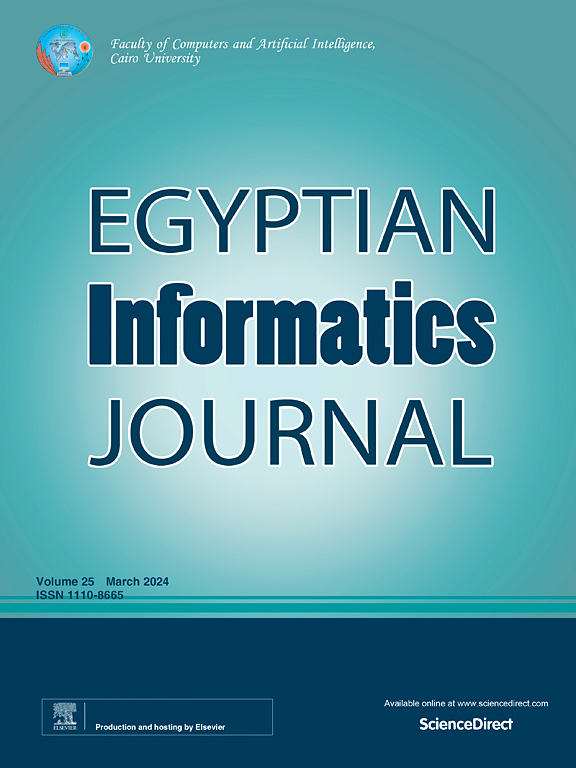基于贝叶斯优化方法的高级混合深度学习模型大坝水位预测
IF 4.3
3区 计算机科学
Q1 COMPUTER SCIENCE, ARTIFICIAL INTELLIGENCE
引用次数: 0
摘要
有效的大坝水位预测对于优化水电发电、降低洪水风险和水资源可持续管理具有重要意义。本文提出了一种用于短期水位预测的混合深度学习模型。除了LSTM、BiLSTM、GRU和CNN等深度学习模型外,还对这些模型的混合版本(CNN-LSTM、CNN-BiLSTM、CNN-GRU)进行了评估。使用的数据集是基于2014年至2023年间记录的Deriner大坝的每日水文数据,Deriner大坝是土耳其重要的战略水坝之一。建模过程采用神经结构搜索(NAS)方法之一的贝叶斯优化方法,以最大限度地减少人工干预超参数选择。每个模型的nas优化版本分别进行了开发和比较。所提出的CNN-GRU统一(CGU)混合模型准确率最高,R2 = 0.9941。本文提出的CGU模型将空间特征提取和时间依赖关系建模在同一结构下相结合,与现有模型及其混合模型相比,该模型具有更好的性能结果。模型精度高,错误率低,表明CGU架构是一种成功可靠的解决方案,可集成到大坝实时管理系统中。这些发现为文献带来了一种新的、可扩展的建模方法,显示了nas支持的混合模型在战略水管理应用中的可用性。本文章由计算机程序翻译,如有差异,请以英文原文为准。
Dam water levels prediction using advanced hybrid deep learning model based on Bayesian Optimization approach
Effective dam water level prediction is of critical importance for the optimization of hydroelectric power generation, flood risk reduction and sustainable water resources management. In this study, a hybrid deep learning model is proposed for short-term water level prediction. In addition to deep learning models such as LSTM, BiLSTM, GRU and CNN, hybrid versions of these models (CNN-LSTM, CNN-BiLSTM, CNN-GRU) are also evaluated. The dataset used is based on daily hydrological data recorded between 2014 and 2023 of Deriner Dam, one of the strategically important dams of Turkey. The modeling process is supported by the Bayesian Optimization approach, which is one of the Neural Architecture Search (NAS) approaches, in order to minimize human intervention in hyperparameter selection. The NAS-optimized versions of each model are developed and compared separately. The highest accuracy was achieved with the proposed CNN-GRU Unified (CGU) hybrid model with a score of R2 = 0.9941. The proposed CGU model combines spatial feature extraction and temporal dependencies modeling in the same structure, and better performance results are obtained with this model compared to state-of-the-art models and their hybrid versions. The high model accuracy and low error rate in the study show that the CGU architecture is a successful and reliable solution that can be integrated into real-time dam management systems. These findings have brought a new and scalable modeling approach to the literature, showing the usability of NAS-supported hybrid models in strategic water management applications.
求助全文
通过发布文献求助,成功后即可免费获取论文全文。
去求助
来源期刊

Egyptian Informatics Journal
Decision Sciences-Management Science and Operations Research
CiteScore
11.10
自引率
1.90%
发文量
59
审稿时长
110 days
期刊介绍:
The Egyptian Informatics Journal is published by the Faculty of Computers and Artificial Intelligence, Cairo University. This Journal provides a forum for the state-of-the-art research and development in the fields of computing, including computer sciences, information technologies, information systems, operations research and decision support. Innovative and not-previously-published work in subjects covered by the Journal is encouraged to be submitted, whether from academic, research or commercial sources.
 求助内容:
求助内容: 应助结果提醒方式:
应助结果提醒方式:


